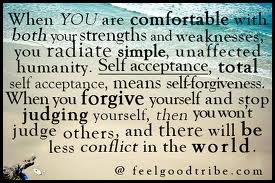Tips for improving your well-being.
 By achieving personal well being, it means you have taken the time to nurture several different aspects of your mind and body so that you may become healthy and strong.
By achieving personal well being, it means you have taken the time to nurture several different aspects of your mind and body so that you may become healthy and strong.
Start small. Each time you make a decision to do something to improve your well-being, make sure that you do achieve it, most importantly, ACKNOWLEDGE that you have achieved. Only then do you gain the self-confidence and self-esteem to achieve again. Only then do you get the full motivation to move ahead.
Tip 1: Drink 2 Litres of Water per day
The cells in your body are made predominantly of water and they need to stay hydrated in order to function well, try to drink approx 2 Litres = approx 8 glasses per day.
If this is a lot more than you currently drink increase your intake by an extra glass every 2 days until you reach 8 glasses.
•Place a 1 litre bottle or jug on your desk to help you monitor intake. Sip slowly all day rather than gulp several glasses at a time.
•Drink before you feel thirsty. When your body feels thirsty it is already dehydrated.
•Tea, Coffee and Soft drink do not count towards your 8 glasses. Try and avoid these.
•If you are exercising you need to drink extra water before, during and after your workout.
Tip 2: Exercise 3 to 4 times a week
30 minutes of exercise that gets your heart and lungs working is the minimum.
•Choose an activity that you enjoy - walking, dance class, tennis, gym, swimming etc
•3 x 30 minutes is better for you than 1 x 90min
•Join a club, social group or find a buddy to help you stick to your plan.
•Breakfast is the most important meal of the day.
•Your metabolism slows down while you sleep and does not increase until you eat something. Breakfast kick starts your metabolism for the day.
•If you are not a big breakfast eater start with something light such as fruit salad and yoghurt.
•Choose cereals that are low in sugars and high in grains.
•Choose Wholemeal or Multigrain bread rather than White bread. It will keep you full for longer and has more nutrients.
•Increase the amount of green vegetables on your dinner plate each night.
•Green Vegetables have lots of antioxidants and can decrease your chances of diseases such as cancer.
•There are so many green vegetable to choose from - you don't have to eat the ones you don't like.
•Having a balanced diet does not mean you can never eat chocolate, a hamburger or a glass of wine.
It means eat in moderation.
•Minimise use of salt, saturated fats and sugars.
•Take responsibility for your eating choices. Nobody is force feeding you so choose wisely.
•Are you up to date with your health checkups? Dental, Eyes, Ears, Cholesterol etc
•Make it a priority - health problems caught early can be dealt with. Prevention is better than cure!
•Sleep and relaxation are essential for your body's rejuvenation and immune system.
•Most people need 7-9 hours of sleep per night.
•Create a habit of going to bed at the same time most nights and getting up at the same time each morning. Routine makes sleeping easier.
•Relaxation during the day will help manage stress levels in your body.
•Yoga, meditation, reading, listening to music are all easy ways to relax.
•Have one really good belly laugh every day.
•Laughter assists the immune system.
•Laughter generates endorphins. Endorphins are nature's anti depressant.
•Go for a walk around the block or sit quietly under a tree and breathe deeply.
•Fresh air will help you feel more alert
•Fresh air will give more oxygen to your body helping it work better.
Close relationships affect how we feel, so it is very important to nurture them and if there is a problem with a relationship try to resolve it one way or the other.
Tip 11: Listen to your Body
"Well-being is not just the absence of disease or illness. It is a complex combination of a person's physical, mental, emotional and social health factors. Well-being is linked to how you feel about yourself and your life.
Live well!
Marie Joshua
Psychological counsellor & Wellness Practitioner
mariejoshua@gmail.com
LISTEN to your body .. it knows what you need. RESPECT your body ... it is the only one you've got!
"Well-being is not just the absence of disease or illness. It is a complex combination of a person's physical, mental, emotional and social health factors. Well-being is linked to how you feel about yourself and your life.
Marie Joshua
Psychological counsellor & Wellness Practitioner










Comments